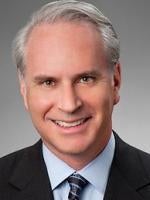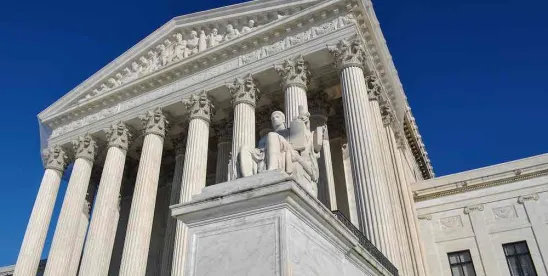On December 9, 2024, the U.S. Supreme Court heard oral argument in Kousisis v. United States[1], a case that asks the Supreme Court to significantly narrow the scope of what behavior constitutes a federal criminal fraud.
For example, if your babysitter tells you over the phone that she is going to use her babysitting money to pay for college, but in reality she blows it on a trip to Cancun instead, did she commit wire fraud? Sounds crazy, right? But, this was a real hypothetical used by Justice Gorsuch during oral argument and the Government eventually agreed that such conduct would be covered under the federal wire fraud statute, albeit with a low Guidelines range! Thus, the problem. Not every lie can be wire fraud. Where to draw the line is what is at stake in Kousisis.
Background of Kousisis v. United States
This government claimed that the Pennsylvania Department of Transportation (“PennDOT”) was fraudulently induced to award a contract to the defendant’s company. For the contract at issue, PennDOT had a requirement that a certain percentage of the sub-contracts go to disadvantaged business enterprises (“DBE”). Defendant’s company lied about its use of a DBE subcontractor, instead using a DBE as a passthrough which did no actual work on the project. Despite this lie, defendant’s company completed the project, fulfilling all other terms of the contract. In the end, defendant received tens of millions of dollars for a contract that PennDOT would not have awarded had it known defendant would not comply with the DBE requirement. On the other hand, PennDOT got exactly what it contracted for and did not suffer any economic harm.
Kousisis argued that without any allegation of economic harm, or even intent to cause economic harm, there can be no basis to sustain a charge of federal fraud. His company provided quality work at the bargained for price and the state suffered no harm and therefore, he maintained no crime occurred. The Third Circuit disagreed, holding that economic harm is not required to sustain a fraud charge, and affirmed Kousisis’s conviction and sentence to 70 months in prison and restitution of $11 million, plus a $500,000 fine (a complete windfall for PennDOT).
Oral Argument
At oral argument, both the defendant and the government argued that the other side proposed a rule with no reasonable limit. Defendant argued that the government’s expansive understanding of fraud turns any exaggeration or white lie that induces someone to contract into a federal crime. The government countered that defendant’s theory was limitless, eliminating fraud in preposterous circumstances where something completely different from the promised good or service is provided as long as they are priced the same.
The Justices seemed divided on these issues. Justices Sotomayor and Jackson in particular pushed back on defendant’s arguments. They emphasized that the contract called for a particular person, a DBE, to provide the service and questioned why failing to do so was not a classic scheme to obtain property under false pretenses.
All of the Justices posed to both sides a series of hypotheticals ranging from charity fraud, to painting the wrong room in a house, to receiving a million dollars-worth of coal instead of gold bars, to try to nail down exactly when a lie rises to the level of fraud. These hypotheticals showed that most of the Justices were focused on what would qualify as economic harm under the defendant’s theory of fraud, rather than the baseline question of whether deception alone can be federal criminal fraud.
As noted in the introduction, Justice Gorsuch (who has often criticized the expansion of federal criminal law) honed in on a hypothetical in which a babysitter lies to a prospective client about where her babysitting money will go if hired (lying that it will be virtuously spent on college instead of actually blowing it on a trip to Cancun). The defense said this was not fraud; the family still received excellent services for the agreed upon price. The government, however, eventually conceded that under its theory of fraud, the babysitter would have committed property fraud.
The government’s final line of reasoning turned to the concept of materiality, arguing that the question should be whether the deception went to the “essence of the bargain” rather than whether there was economic harm or not. This was an interesting argument because 1) it appeared to be new in this case, as it had not been a pillar of the government’s arguments in the lower courts, and 2) the government claimed that materiality and “essence of the bargain” were equivalent standards. Generally, materiality has been seen as a much lower standard than finding that a lie went to the essence, or nature of the bargain. (See our June 11, 2024 article, “9th Circ. Ruling Shows Lies Must Go To Nature Of Bargain “on this issue in the Ninth Circuit). This argument could end up benefiting the defense, who pointed out in the rebuttal, that Buy America clauses, which are very similar to the DBE clause in this case, have been held to not go to the essence of the bargain.
What Happens Next?
The Court will announce its opinion on this case in July of 2025. In the meantime, we can only speculate on what that ruling will include and how wide of an impact it will have. Kousisis comes to the Supreme Court on the heels of several other cases that indicate the tides are shifting against considering any and all lies a legitimate basis for federal fraud charges.
Last year the Supreme Court reached a unanimous decision overturning the use of the “right to control” theory in the Second Circuit because the fraud did not deprive the victim of a traditional property right. Ciminelli v. United States, 598 U.S. ___ (2023). And earlier this year, the Ninth Circuit has held that lies must go to the “nature of the bargain” to be considered a federal crime. United States v. Milheiser, No. 21-50162 (9th Cir. 2024).
The Supreme Court could continue the line of thinking, reverse the Third Circuit entirely and hold that a defendant must intend to cause economic harm to the victim to sustain a conviction under the federal fraud statutes. They could also, as Justice Alito raised during oral argument on Monday, signal that “the court really doesn’t like the federalization of white-collar prosecutions and wants that to be done in state court.”
What appears most likely after Monday’s oral argument is that the Supreme Court issues a limited ruling, rejecting the government’s expansive theory that any deception, even without intent to harm, could constitute property fraud, but not fully accepting the defendant’s theory either. The Court seemed to have a good amount of skepticism that lying about subcontracting to a DBE did not introduce any sort of economic harm in this case. It could also look to the government’s materiality theory to limit the holding, finding that the type of deception can matter, even without economic harm.
In the end, it seems unlikely that Kousisis would get off scot-free. The Justices seemed to agree that the defendant was wrong to lie about employing DBEs during its contract term and it was a but-for cause of him securing the contract. But, based on oral arguments, it does seem like this could be a close case. Perhaps, as the defendant’s lawyer repeatedly pointed out, the Court will be persuaded that there are contract remedies, civil fraud claims and even lesser criminal charges available to the government to prosecute cases like this. And if the Court finds in favor of Kousisis, the government may be relying on those other options more frequently in the future.
FOOTNOTES
[1] Kousisis v. United States, 82 F.4th 230 (3d Cir. 2023), cert. granted, 144 S.Ct. 2655 (2024)




 />i
/>i

